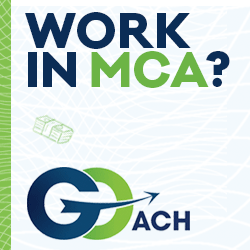Results 1 to 20 of 20
-
02-05-2016, 12:49 AM #1Senior Member











 Reputation points: 23702
Reputation points: 23702
- Join Date
- Jul 2014
- Posts
- 1,746
Glass-Steagall
"Now, because of the repeal of the Glass-Steagall Act, and because banks are now permitted to engage in high-risk brokerage activities — including selling insurance, underwriting securities — they’re hedging their risk through strategies such as short selling and continuing to develop and trade extremely risky financial derivatives."
Seems to include merchant cash advance products in my humble opinion. This is what led to the meltdown in 2008.
Thoughts? Anyone concerned?
-
02-05-2016, 12:58 AM #2
-
02-05-2016, 01:13 AM #3Senior Member











 Reputation points: 23702
Reputation points: 23702
- Join Date
- Jul 2014
- Posts
- 1,746
Glass-Steagall
Yep, I listen to him everyday and find him a pretty smart guy. I understand the timeline, but what he had to say today rang some bells for me. I'm asking for opinions on another meltdown due to banks backing high risk lending instruments.
-
02-05-2016, 01:14 AM #4Senior Member











 Reputation points: 23702
Reputation points: 23702
- Join Date
- Jul 2014
- Posts
- 1,746
Glass-Steagall
^again
-
02-05-2016, 09:32 AM #5
For one thing, the money in our field comes primarily from private investors, not Grandma's retirement. Secondly, we are not FDIC insured, so we are not putting the federal government on the line for bad investments. Therefor, even if Glass-Steagall is brought back, which may not be the worst idea ever, I do not think it would that much of an effect on us, except for those funders who are backed by big banks.
-
02-05-2016, 09:48 AM #6Senior Member











 Reputation points: 10944
Reputation points: 10944
- Join Date
- Oct 2013
- Location
- New York, NY
- Posts
- 1,203
Well said, I totally agree that the affect will be with those backed by big banks.
-
02-05-2016, 09:52 AM #7Senior Member











 Reputation points: 23702
Reputation points: 23702
- Join Date
- Jul 2014
- Posts
- 1,746
Glass-Steagall
I'm confused, I thought our funds were backed by the big banks. Wasn't there just a colorful flow chart just being circulated a week ago with the hierarchy between lenders and the major banks?
I guess let me amend that to - most of the funds in the space being backed by the major bank players. On Deck, CAN, etc.
-
02-05-2016, 10:03 AM #8Senior Member











 Reputation points: 158630
Reputation points: 158630
- Join Date
- Jul 2015
- Posts
- 1,202
As an aside, I'd think that extending credit/loans/advances to unqualified merchants should be a macro concern for banks and no-banks alike. Unsuitable loans and over leveraging of real estate keyed the meltdown. As for MCA, will "Stacking" be the new "Sub-prime"? It's not out of the question, but not directly comparable either..
-
02-05-2016, 10:10 AM #9Senior Member











 Reputation points: 54989
Reputation points: 54989
- Join Date
- Dec 2013
- Posts
- 4,713
Lets all calm down our entire industry is just a couple of Billion. there are tile companies that factor that amount when they sell tiles to Home Depot.
Last edited by mcaguru; 02-05-2016 at 10:19 AM.
Marcus Clapman | Business Development | Cresthill Capital
(High Commissions Payout Group)
Tel: 917-521-6528 | Fax: 212.671.1473
Email: bizdev@cresthillcapital.com
http://www.cresthillcapital.com
-
02-05-2016, 10:47 AM #10
-
02-05-2016, 10:48 AM #11Senior Member











 Reputation points: 16720
Reputation points: 16720
- Join Date
- Sep 2014
- Posts
- 430
Glass-Steagall was repealed as much because it was antiquated versus anything else. If anything, the repeal created more transparency and efficiency in the financial services market. No longer did a bank have to refer out IB, insurance, etc. and get a referral fee/commission, or set up a bunch of shell companies, JVs, SPEs, etc. to account for those flows. Further, as the digital age advanced money became even more fluid. Trying to keep banks out of IB and vice versa is the same reason why it's a poor idea to approve an MCA to a guy that owns an auto repair and used car sales business, but promises the funds will only be used for the auto repair shop.
As for Savage's comments, MCA isn't in there. In order to get to the level of complexity of the mortgage fiasco, the products would have to be very homogeneous in terms of structure, rates, terms, and underwriting. That simply doesn't exist in our industry. Further, the volumes aren't there. In order to create CDOs and the like, you'd need billions in originations a month to be able to build performance data, assign tranches, create pools, etc.
-
02-05-2016, 01:37 PM #12Member

 Reputation points: 15
Reputation points: 15
- Join Date
- May 2015
- Posts
- 14
I think he misses the point on what a "high-risk activity" is. Investment banking activities are primarily fee-based revenue streams for banks. Very little of the bank's capital or customer's deposits are at risk with these activities.
Also, Glass-Steagall had nothing to do with the financial crisis. Lehman, Bear Stearns, pure investment banks with no retail deposits. Countrywide and other mortgage originators were non-bank retail lenders that still would not have been regulated had Glass-Steagall still existed. Large universal banks, created through Glass Steagall, JP Morgan-Chase, Wells, BoA actually made it through relatively unscathed.
Let's not forget the underlying product that was the center of the crisis. Retail mortgages. Boring old retail lending, which is actually very risky, especially when you flush all underwriting standards down the toilet in favor of aggressive selling and cut-throat competition.
-
02-05-2016, 01:55 PM #13Senior Member











 Reputation points: 23702
Reputation points: 23702
- Join Date
- Jul 2014
- Posts
- 1,746
Glass-Steagall
Unscathed? Weren't those banks included in the biggest government bailout in US history?
If I come off as ignorant on this subject, it's because I probably am. I want to really understand our industry and be able to predict with some form of accuracy, the direction which we are headed.Last edited by FUNd; 02-05-2016 at 01:59 PM.
-
02-05-2016, 02:02 PM #14Member

 Reputation points: 15
Reputation points: 15
- Join Date
- May 2015
- Posts
- 14
While is likely wouldn't be as complex as what happened with mortgages, it wouldn't be inconceivable for a bank (or group of banks) that used retail deposits to fund MCA and/or other small business loans using poor or faulty underwriting, were overly concentrated in that product and saw larger than expected defaults, they could fail. If the failures were big enough to make national news, I think that could give MCA/alternative small business lending a set-back.
-
02-05-2016, 02:21 PM #15Member

 Reputation points: 15
Reputation points: 15
- Join Date
- May 2015
- Posts
- 14
No doubt, the top nine banks all had bad mortgages or underlying mortgage investments on their balance sheets, but probably could have made it through without the capital injections. Each bank got no more than $25 billion in capital, JP Morgan had $2 trillion dollars in assets in 2008.
The bailout was needed because ensuring the smooth operation of payments has become the primary purpose of central bank liquidity, because we are dependent on commercial banks to facilitate the vast majority of cash transactions. The gov't had to get the public to believe that the payments system would not fail, which prevented highly damaging market freezes or bank runs. Also, at that time, the Congress voted to raise FDIC insurance limit to 250k, which FDIC temporarily lifted any limit for a year. If everyone's bank deposits are safe, there is no need to pull them out, causing further liquidity issues for banks.
-
02-05-2016, 02:25 PM #16Member

 Reputation points: 15
Reputation points: 15
- Join Date
- May 2015
- Posts
- 14
If you look at the other 40 or so regional/community banks that also took TARP money, they really were much more concentrated in the mortgage market, and really needed the money and the government to take these bad assets off their balance sheet
-
02-05-2016, 02:44 PM #17Senior Member











 Reputation points: 1719
Reputation points: 1719
- Join Date
- Aug 2014
- Posts
- 187
What's happening is that bigger money is coming into the business, and eventually the regulators and the taxation authorities will follow. Every angry merchant, every junk fee, every rude broker yelling at his client takes us one step closer to that threshold. Its all about perception: if the industry is seen as the wild wild west (which it actually and truly is), sooner of later someone will pick up on that as a way of getting clicks and page views. Perhaps some enterprising jschool grad over at Huffpost will see this as another element of the finance industry in need of some heavy government shakedown and the like.
Of course, this can all be brought to a crashing halt if every last company in the industry contributes and votes Democrat. Think I'm kidding? Ask Jon Corzine.
-
02-05-2016, 02:57 PM #18Senior Member










 Reputation points: 1370
Reputation points: 1370
- Join Date
- May 2015
- Location
- NC
- Posts
- 208
Ask Corzine what? How he pilfered segregated customer funds at MF Global and didn't go to prison?
-
02-05-2016, 02:57 PM #19Senior Member











 Reputation points: 1719
Reputation points: 1719
- Join Date
- Aug 2014
- Posts
- 187
In fact, let me write the New York Times article for you:
"Linus Williams slowly locked the door of his business for the last time. The son of Immigrants, Linus inherited the business after his father built it from nothing, and after the mortgage crisis of 2008, the business fell on hard times. Today, Linus walked away from his business, not because of declining sales, but because of expensive debt - debt so expensive it boggles the mind - and became a money pit into which his revenue disappeared.
In brighter times, the business was a hub of activity for the community, and one neighbor even recalls a local woman giving birth just inside of the lobby. Linus himself proposed to his wife there.....but since those debts came along, and wiped that all out, the community lacks both a vital resource and impromptu maternity ward.
What kind of debt, you may ask, put Linus out of business....."
.....so then Liz Warren gets wind of it, Rachel Maddow kfetches about the evils of commerce, the Department of Justice comes in like a deus ex machina, and that's that.
-
02-05-2016, 03:10 PM #20
I think for those that want to predict what possibly can happen to our industry should look into what happened with the payday loans and 2008 housing bubble. I think if we combine regulations on both we can predict some of the changes in store for us. Payday loans were suddenly capped in the interest rates they could charge clients, borrowers could not take out a loan to pay for a previous loan. They were forced to be more transparent and inform their clients of what they were getting into. Real estate no longer unlicensed mortgage brokers or realtors, they also now require back ground checks. Underwriting was tightened up and new guidelines added. Two examples and good reading if you want to look into it. I feel like our industry combines a little bit of both. My two cents
**"Under Florida’s law, if borrowers can’t repay a loan, the bill provides for a 60-day grace period, provided they agree to take part in credit counseling and set up a repayment schedule."Last edited by TheShitzuofMCA; 02-05-2016 at 03:22 PM.


 Reply With Quote
Reply With Quote




















